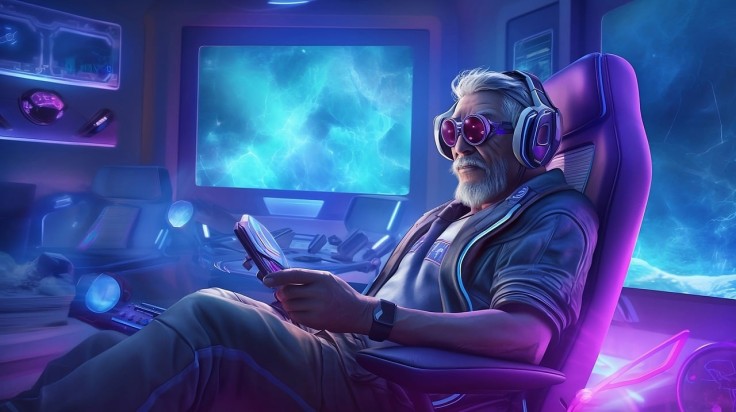
In a groundbreaking move that promises to reshape the landscape of game development, Unreal Engine (UE) has joined forces with the innovative AI powerhouse CybeverAI. This partnership heralds a new era in gaming, combining the cutting-edge capabilities of Unreal Engine with the prowess of CybeverAI's advanced artificial intelligence solutions.
The post also emphasizes the significance of nurturing AI expertise and collaborating exclusively with seasoned game development companies that have lots of AI experience. Experienced organizations such as Stepico can effectively bridge the gap between AI and Unreal knowledge, thereby minimizing development risks and costs. Additionally, they can provide access to specialized tools and resources, ultimately streamlining the development workflow for any game publisher aiming to launch a competitive title on UE.
Why Is AI Such a Big Deal in Game Development?
In the ever-evolving realm of gaming, artificial intelligence has emerged as a game-changer, providing developers with a toolkit to create immersive and dynamic experiences. Unreal Engine, a stalwart in the gaming industry, has recognized the potential of AI in elevating game development to unprecedented heights.
Why Do So Many Game Publishers Choose to Work with AI-Savvy Game Development Organizations?
- Implementing AI in Unreal requires expertise in both AI and Unreal Engine, which their in-house teams might lack.
- Experimenting with AI in-house can be risky and expensive due to potential mistakes and inefficiency. Big-league game development companies provide experts who are proficient in AI technology and employ it properly. There is also a separate profession called Prompt Engineer, a trained intermediary between humans and machine learning models.
- Keeping up with rapid advancements in AI and Unreal can be difficult for internal teams. Vendors actively track these advancements and implement them in your project, future-proofing it.
Some Key Ways in Which AI Is Utilized in Game Development
- Non-Player Character (NPC) Behavior Generation: AI can generate more realistic and adaptive NPC behaviors. For example, NPCs can have dynamic conversations with players, react intelligently to changing game situations, and exhibit unique personalities. In Unreal Engine, the Behavior Tree system allows developers to script complex NPC behaviors.
- Procedural Content Generation (PCG): AI algorithms can expedite the process of generating game content like environments, items, quests, and more. This saves development time and creates more variety. In Unreal, for instance, developers can use AI tools to create realistic human characters quickly.
- Adversarial Agents: AI can control challenging in-game opponents. AI agents can analyze a player's tactics and adapt their strategy, like DeepMind's AlphaStar AI, which learned to play StarCraft II at a high level. Unreal has a bot AI framework that can manage bot behavior.
- Dynamic Difficulty Adjustment (DDA): AI can dynamically adjust game difficulty to match a player's skill level, keeping gameplay engaging but achievable. Various DDA solutions are used in Unreal to implement this.
- Natural Language Processing: Players can interact with games using natural language via voice commands or chat. AI can be used within UE games to understand requests, answer questions, and generate responses.
- Graphics Animation: AI techniques like deep learning and motion capture can automate the animation of character movements, facial expressions, etc. This enhances realism. Unreal includes tools to integrate ML animation.
- Experience Enhancement: AI can personalize and improve the gaming experience via recommendations, chatbots, predictive analytics of player psychology, and more. Unreal offers APIs to build these AI features.
- Bug Testing & QA: AI can automatically playtest games to detect bugs and issues. This complements human testing. Unreal provides frameworks to apply AI for robust QA testing.
- Realistic Simulation: AI can power next-level physics, graphics, and gameplay simulation for ultra-immersive worlds. Unreal offers cutting-edge solutions for AI-driven simulation.
- Player Behavior Analysis: AI can analyze player metrics, behavior patterns, and feedback to improve game design and mechanics. Unreal includes APIs to extract player data for AI analysis.
Examples of Unreal Engine Games That Use a Lot of AI
- Fortnite. Uses AI for building procedural maps, adaptive difficulty bots, realistic player analytics, and more. Fortnite continues to expand its use of AI with each new season.
- Gears of War series. Praised for its tactical bot AI that flanks, takes cover, and employs teamwork against the player. The bot AI provides a compelling PvE co-op experience in Gears of War.
- Insurgency: Sandstorm. This tactical shooter is known for its realistic and challenging gameplay, which is heavily influenced by AI. The AI enemies are able to flank, take cover, and work together effectively, making them a real threat to players.
- Ghost Recon Breakpoint. This open-world tactical shooter features AI enemies that adapt to your playstyle and tactics. They can also call in reinforcements and use drones to attack you, making for a dynamic and challenging experience.
- The Outer Worlds. This open-world RPG features AI companions that can be customized and equipped with different weapons and armor. They can also be given orders and will react to your actions and decisions.
Conclusion: Embracing the Power of AI in Unreal Engine Development
The gaming landscape is undergoing a revolution, and AI is at the forefront of this evolution. By seamlessly integrating AI into your Unreal Engine project, you're not simply adding bells and whistles; you're unlocking a universe of possibilities for deeper player immersion, dynamic experiences, and groundbreaking gameplay mechanics.
While venturing into the world of AI development in-house might seem appealing, partnering with an experienced technology vendor, such as Stepico, specializing in both AI and Unreal game development, offers immense advantages.
So, for those seeking to step into the future of game development with the power of UE and Artificial Intelligence, you can contact a company like Stepico, which is proficient in both and has nine years of experience in the gaming market, to create a memorable and immersive AI-enabled UE game. Through a perfect blend of AI and UE capabilities, they will help you redefine player experiences.









